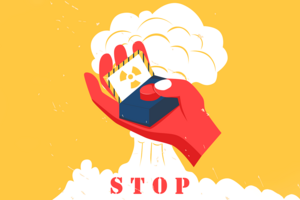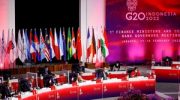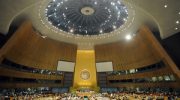Lapid mentioned the unnamed “other possibilities of Israel”.

Prime Minister of Israel Yair Lapid under the timing of his speech on Monday hinted at the country's nuclear arsenal, writes CNN.
Speaking at an event marking the change of leadership at the country's Atomic Energy Commission, Lapid mentioned Israel's defensive and offensive capabilities, as well as the fact that he called “other possibilities” – which, obviously, should be understood as a reference to nuclear weapons.
“The operational arena in the invisible dome above us is built on defensive and offensive capabilities, as well as what foreign media call 'other capabilities.' These other capabilities keep us alive and will keep us alive as long as we and our children are here,” Lapid said.
Israel is believed to have several hundred nuclear weapons, which it began developing in the 1960s. Unlike most nuclear-weapon states, Israel has never officially declared its presence. Instead, he pursues a “policy of opacity,” meaning that when forced to talk about it, Israeli leaders prefer to make only passing or vague references to nuclear weapons.
The first such statement was made in the early 1960s by then-junior Defense Minister Shimon Peres, who said that Israel “certainly will not be the first to deploy nuclear weapons in the region.”
Recently, former Prime Minister Minister Ehud Olmert probably acknowledged the presence of nuclear weapons when he included Israel along with the United States, Russia and France in the list of countries that have them, although he later tried to deny this claim.
Read also: Statements of the Russian Federation about the possible use of nuclear weapons raise the stakes for the whole world – Charles Michel
Benjamin Netanyahu also once called Israel a “nuclear state” during a speech in front of his cabinet. After all, he later corrected himself by explaining what he meant by “energy state”.
As reported, on July 15 US President Joe Biden and Israeli Prime Minister Yair Lapid signed a joint commitment – “Jerusalem Declaration” – about opposing Iran in its desire to develop nuclear weapons.


